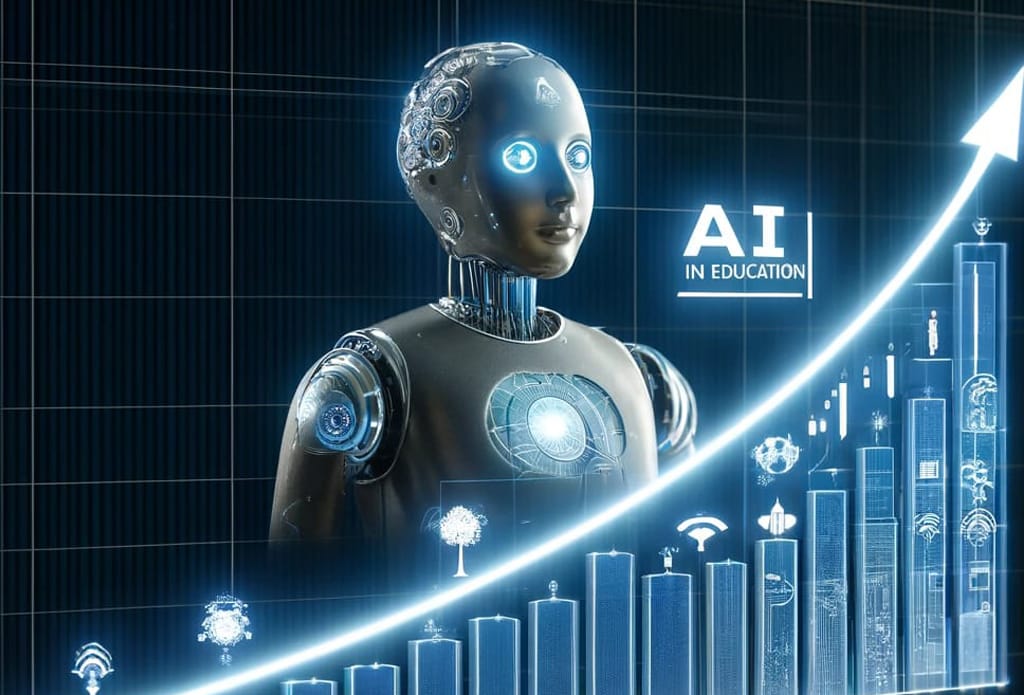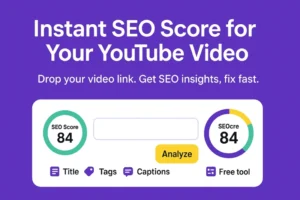Education has always been at the forefront of technological advancements. From traditional blackboards to smart classrooms, the evolution has been remarkable. Now, Artificial Intelligence (AI) is leading the next educational revolution, reshaping the way students learn and teachers instruct.
AI-driven education is no longer a futuristic concept. It is already embedded in our learning systems through automated grading, AI tutors, personalized learning platforms, and smart analytics. Schools and universities are rapidly adopting AI-powered tools to enhance efficiency and improve learning outcomes.
However, with these advancements come challenges, ethical concerns, and questions regarding the role of AI in traditional teaching. Will AI replace educators? Can AI ensure fair and unbiased learning? How can institutions implement AI responsibly?
In this comprehensive guide, we will explore:
- What AI in education means and its real-world applications
- The biggest benefits AI offers to students, teachers, and institutions
- The challenges and ethical concerns surrounding AI-powered learning
- Future predictions on AI’s role in the education sector
Let’s dive into how AI is reshaping the education industry and what it means for the future of learning.
What is AI in Education?
Artificial Intelligence in education refers to the integration of machine learning, automation, and data-driven algorithms into the teaching and learning process. These AI technologies can analyze student performance, personalize curriculum content, and provide real-time feedback, making education more effective and accessible.
How AI is Used in Learning
How AI Analyzes Learning Behavior
AI-powered systems track student performance and adapt the curriculum accordingly. For instance:
- If a student struggles with a math concept, the AI system recommends simpler exercises before advancing.
- If a student excels in language learning, the AI automatically increases the difficulty level.
- AI tools provide instant feedback and progress reports, allowing teachers to fine-tune their teaching methods.
This ability to personalize learning experiences is what makes AI so powerful in education.
Benefits of AI in Education
AI is creating massive opportunities for students, educators, and educational institutions. Here’s how:
1. Personalized Learning & Adaptive Teaching
- AI-driven platforms tailor lesson plans to match students’ learning speeds
- Helps students focus on weaker areas while advancing in stronger subjects
- AI-based speech recognition tools assist students with learning disabilities
Example: Duolingo’s AI engine personalizes language learning exercises based on user responses, making lessons more effective.
2. AI Automates Administrative Tasks
- AI helps teachers save time on repetitive tasks such as:
- Grading tests and assignments
- Organizing student attendance and timetables
- Providing auto-generated lesson plans
Example: AI-powered plagiarism detection tools like Turnitin AI analyze writing authenticity, ensuring academic integrity.
3. AI-Powered Smart Tutors & Virtual Assistants
- AI tutors provide 24/7 academic support
- Smart bots answer student queries instantly
- AI assistants help in language learning, coding, and STEM subjects
Example: Google’s Socratic AI Tutor provides step-by-step explanations of math and science problems through AI.
4. Data-Driven Decision Making in Education
AI-driven analytics help schools improve student retention and performance.
- Predicts which students need extra support
- Identifies subject areas requiring curriculum improvement
- Offers real-time progress reports for teachers and parents
Example: Knewton’s AI analyzes millions of learning patterns to personalize lesson plans.
5. AI in EdTech & Online Learning
- AI is revolutionizing Massive Open Online Courses (MOOCs), e-learning platforms, and EdTech startups.
- AI-enhanced virtual classrooms simulate real-world teaching
- AI-powered interactive quizzes improve engagement
- Automated exam proctoring prevents cheating in online courses
Example: AI in Coursera and Udemy suggests courses based on a learner’s previous activities.
Challenges & Ethical Concerns of AI in Education
Despite its immense benefits, AI in education comes with serious ethical concerns and challenges:
1. Data Privacy & Security Risks
- AI collects massive amounts of student data
- Unauthorized data breaches can put student privacy at risk
- Institutions must follow strict data regulations (GDPR, FERPA)
2. AI Bias & Fairness Issues
- AI can favor specific demographics if trained on biased data
- Unfair grading algorithms can disadvantage certain students
- Ethical AI models must be built to ensure fairness in education
3. Dependency on AI vs. Human Teachers
- Will AI replace teachers? No, but it will assist them
- AI cannot replace emotional intelligence, mentorship, and creativity
- Human-AI collaboration is the future of education
Future of AI in Education
With AI evolving rapidly, what can we expect in the next decade?
AI Trends in Education
- AI-powered smart classrooms will become standard
- Virtual reality (VR) and augmented reality (AR) will enhance AI learning
- AI-generated textbooks and interactive learning content will rise

Projected Growth of AI in Education (2023-2030)
import matplotlib.pyplot as plt
years = [2023, 2025, 2027, 2030]
market_size = [5, 15, 30, 50] # AI in education market size in billion USD
plt.plot(years, market_size, marker='o', linestyle='-')
plt.title("Projected Growth of AI in Education (2023-2030)")
plt.xlabel("Year")
plt.ylabel("Market Size (Billion USD)")
plt.grid(True)
plt.show()
AI in education is expected to reach a $50 billion industry by 2030.
FAQs on AI in Education
1. How is AI used in education?
AI is used in education for personalized learning, automated grading, intelligent tutoring, administrative automation, and data-driven decision-making. It helps students learn at their own pace while supporting teachers with workload reduction.
2. Will AI replace teachers in the future?
No, AI will enhance but not replace human teachers. While AI can automate repetitive tasks and provide personalized learning experiences, human educators play a crucial role in mentorship, creativity, and emotional intelligence in the classroom.
3. What are the biggest challenges of AI in education?
The major challenges include data privacy concerns, algorithmic bias, unequal access to AI-powered tools, and the risk of over-dependence on technology. Ethical AI implementation and regulations are necessary to mitigate these issues.
4. How does AI improve student learning?
AI adapts to individual student needs, providing real-time feedback, interactive exercises, and customized lesson plans. AI-powered tools like adaptive learning platforms and smart tutors help students grasp concepts more effectively.
5. What is the future of AI in education?
AI in education is expected to grow exponentially, with developments in AI-powered virtual classrooms, VR-based learning, automated assessments, and AI-driven career counseling. By 2030, AI is predicted to become an essential component of global education systems.
Conclusion
AI is redefining how we learn, teach, and assess knowledge. It offers:
- Personalized learning experiences
- Smarter classrooms and intelligent tutoring
- Enhanced data-driven decision-making
However, institutions must address ethical concerns, bias issues, and data security to ensure fair and inclusive AI adoption in education.
The future of education lies in a hybrid model where AI enhances, but does not replace, human teaching.




